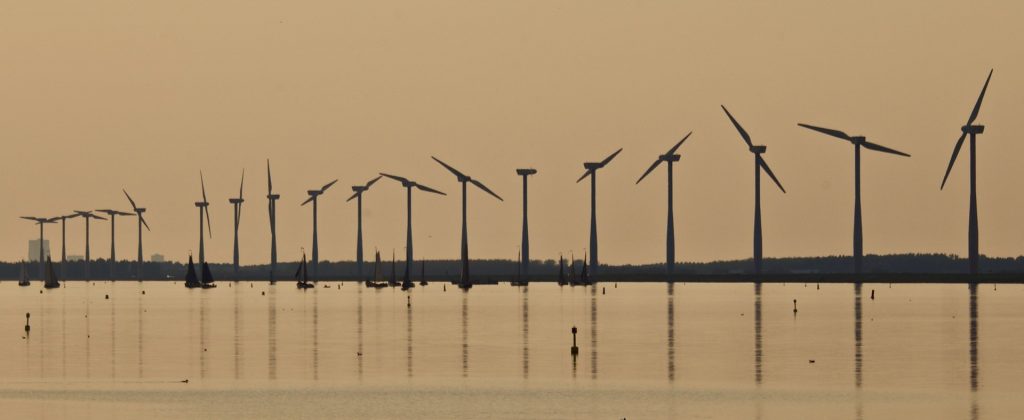Sustainable development aims to ensure that continued well-being and prosperity are achieved while attaining high levels of human and environmental health. This requires cooperation and a holistic approach from all stakeholders to ensure that waste reduction and resource efficiency are maximised in both production and consumption.

Sustainable Development Goals Adoption
On September 25th 2015, more than 190 member states adopted the Sustainable Development Goals (SDG). These called for a coalition of governments, the private sector and civil society to fulfil wide-reaching and ambitious targets. There are many connections between the objectives, and many are mutually reinforcing
The 17 aims cover three main areas: ending poverty, protecting the planet and ensuring mutual prosperity. Within each goal there are specific targets, totalling 169, which are to be met over the next 15 years.
Australia ranks 26th out of 193 member states (it was 20th in 2016), according to the 2017 SDG index. The nation is near the bottom of the group of economically developed OECD nations and has some of the highest per capita carbon emissions in the world. Australia, therefore, has much area for improvement on Goal 12: ‘responsible consumption and production’. The UN notes that it has the worst rate of domestic material consumption of all OECD countries, averaging more than two tonnes of waste per person annually.
Australia also has other areas to improve in order to meet the targets, especially among other environmental criteria such as ‘affordable and clean energy’, ‘life below water’ and ‘climate action’. It scores highly on human-health related criteria such as ‘good health and well-being’ and ‘clean water and sanitation’, indicating SDG achievement in all the indicators within the goal.
Energy is a significant contributor to climate change, accounting for around 60 percent of total global greenhouse gas emissions, according to the UN. Goal 7 and goal 13 focus on both reducing the carbon intensity of energy and increasing the share of renewable and sustainably produced energy to combat climate change. As a highly urbanised country, it’s important that Australia meets goal 11, which requires cities to be environmentally sustainable. This can be achieved through urban planning, which promotes environmental needs and efficient waste management systems.
Goal 14 aims to protect ‘life under water’ and maintain careful administration of this vital resource. Australia needs to protect marine and coastal ecosystems, which are endangered by water pollution and acidification. As a very dry continent with a key agricultural sector, the critical need to maintain sustainable water management in rural areas and cities will only increase in the years ahead. Organisations can both advance the efficiency of their water use and examine how outputs such as waste water from production processes can be managed sustainably.
Goal 12 highlights the need to “Ensure sustainable consumption and production patterns.” The targets encourage all parts of the production chain, both retailers and consumers, to look at promoting the sustainability of a product’s life cycle. Raising awareness of labels and standards that certify sustainable practices can help consumers make more informed choices. Businesses can streamline processes towards waste reduction, resource efficiency and utilising products recovered from waste.
Fostering Sustainable Practices
 To promote sustainable practices, companies can consider which raw material inputs they use and how these are sourced. Utilising materials with lower embedded energy can lower the carbon footprint when it comes to production. By choosing alternative materials, either recycled or by-products of other processes, businesses can help close the loop with products that would otherwise be sent to landfill after use.
To promote sustainable practices, companies can consider which raw material inputs they use and how these are sourced. Utilising materials with lower embedded energy can lower the carbon footprint when it comes to production. By choosing alternative materials, either recycled or by-products of other processes, businesses can help close the loop with products that would otherwise be sent to landfill after use.
Product stewardship is increasingly important, as companies look at how their items and packaging are used at the end of their designed usage. Improving product design can minimise water and energy use while generating less waste and less pollution. Ensuring manufactured and waste products are easily and efficiently recyclable or are designed for reuse in other processes can limit waste. Products that are easily repaired and have transferable parts will have an extended product life and are less likely to be discarded.
There are numerous arguments which make the case for businesses taking a proactive approach towards sustainability. Companies can stay ahead of the curve by investing in technologies and processes that lower costs, maximise the value of waste and enhance their public reputation.
The final Sustainable Development goal states that a multi-stakeholder
Cross Connections and Sustainable Development
Cross Connections has developed the cross-stakeholder Plastic Police® program with the intention of finding local solutions that optimise the use and recovery of non-recycled soft plastics. The program helps educate and engage the local community on ways to reduce and manage the detrimental impacts of soft plastics in their area. It ensures that where these plastics are used, the loop is closed, returning what would otherwise become waste into the circular economy in the form of value-added products and materials.
Cross Connections Consulting is an approved consultant of the NSW government’s OEH Sustainability Advantage programme. Businesses are supported to ensure that sustainability practices are put to the fore in an organisation’s long-term planning. The scheme facilitates networks across sustainability-minded businesses and organises practical workshops and seminars. Sustainability Advantage has made real immediate gains, saving its 500 member organisations a combined $95 million a year.
The SDGs require reduced waste along production and supply chains in collaboration with other stakeholders such as suppliers, consumers, retailers and governments. Through the NSW EPA’s Circulate program, Cross Connections – as a NSW EPA-appointed facilitator – assists businesses and councils in finding value in waste and attaining funding for equipment that diverts waste from landfills. These businesses are offered waste assessments to help them understand the value in waste reduction and resource utilisation.
The circular economic economy model facilitates sustainable growth as resource use can be regenerative. It’s time to reduce, rethink and reform waste into valuable products. Cross Connections Consulting, works to identify and implement resource recovery opportunities and effect greater landfill diversion. Like the natural ecosystems’ cycle of waste management, one process’s waste is another’s resource.


